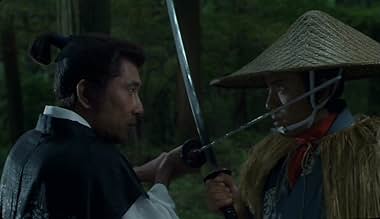This is a serious film made for Japanese people, not an action-drama made for Americans. When will Americans stop thinking that we have an inherently superior culture? We don't. No one does. Life imitates art, and the Japanese people are a serious people, but know how to play hard too. This movie has both serious elements throughout, and a playful morality play some of the time, and part action too. Fukurou no Shiro has many deep elements of drama and film greatness- too many to cover in such a short review. A few of these deep elements are intense art, intense scenery and props, and an intense subliminal story of great depth. Even more than all these, the film and its story reveal a great deal about Japanese people and culture. Some reviews keep repeating "too reserved", but this is one of the most crucial aspects of real Japanese culture in existence. If this movie is for the Japanese people to enjoy fully, then it will have to be a reserved story. The pace is also slow. So what? That is to tell a story, not to produce a fast plot. The art of storytelling is the oldest and most refined art in existence. It takes time to tell a good story. The art in this film is fabulous, as is the scenery. The meticulous detail in many of the outdoor scenes is astounding. No other country could do this- I am sure of this. It would take too much time. Here is a revelation for those in the west: art has no time limit. Art is limitless, as close to eternal as any human endeavor can be- so it can sometimes best be expressed not in a rush. The same goes for people's personalities. While it can be said that most of the characters are somewhat two dimensional, at the same time, some of the core characters portray layers of complexity, and a few of the political leaders are able to do this as well even given only a few minutes of screen time. The morality plays are kept subdued and minimal, but the core elements of those are persistent as the determination of the lead character to complete his job. Two of these lessons are: traitors are not forgiven, and a person with integrity will stick with a task if an important one, or if he or she has given a commitment to do it. Loyalty to the clan is also important (a component of lesson no. 1). This film from the late 1990s is perhaps a culmination of a proud people that long ago completed a major rebound after a long emergence from feudalism; and has realized there are core elements of Japanese culture that are impossible for others to imitate, but if they could it would benefit them. The need to imitate western culture has passed. With art and drama this good, Japan culture is accurately portrayed as fully relevant to itself, complete, something profound and significant in the world, and an example of integrity for other cultures.























